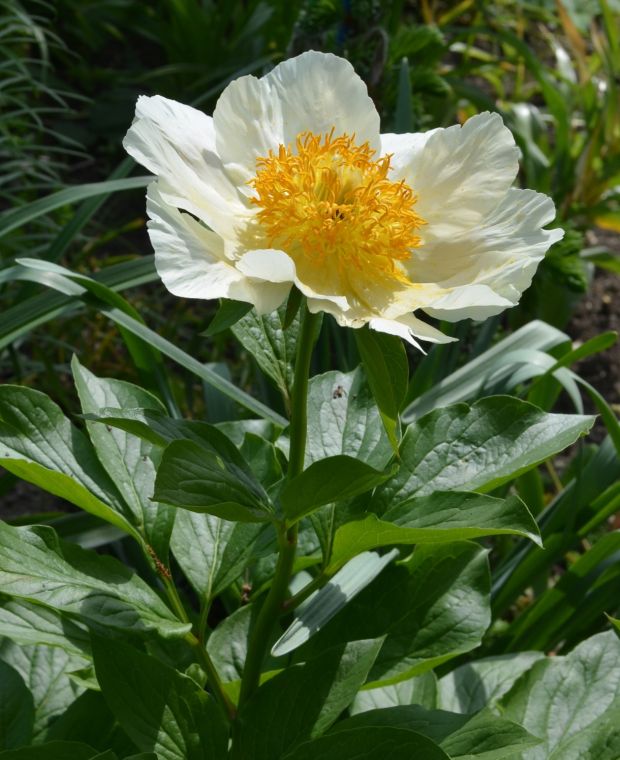Paeonia 'Moonrise' (peony 'Moonrise')Large, intoxicating, luminous bloomsFlowering from May to June, Paeonia 'Moonrise' bears large, fragrant, single, cup-shaped, creamy white flowers with bold golden centres. Foliage is pale green and deeply divided. A soft, delicate appearance belies the tough nature of this peony, which is derived from a species found growing wild in Siberia, Mongolia, China, and Tibet. This clump-forming herbaceous perennial will make a long-lived addition to your garden, though resents any form of disturbance so avoid moving once planted. Ideal for a mixed perennial border or planting with shrubs to provide lower storey interest. Peonies also make excellent cut flowers, lasting for around a week if cut in bud. Plant with a later flowering variety such as 'Dr Alexander Fleming' to extend your display.Prefers deep, fertile, humus-rich, moist, well-drained soil in full sun or part shade. H&S: 90cm x 90cm. Hardy herbaceous perennial.
Flower and Foliage Months

Mar

Apr


May


Jun

Jul

Aug

Sep

Oct

Nov
 Planting Month
Planting Month
 Foliage Month
Foliage Month
 Flowering Month
Flowering Month




 Planting Month
Planting Month 